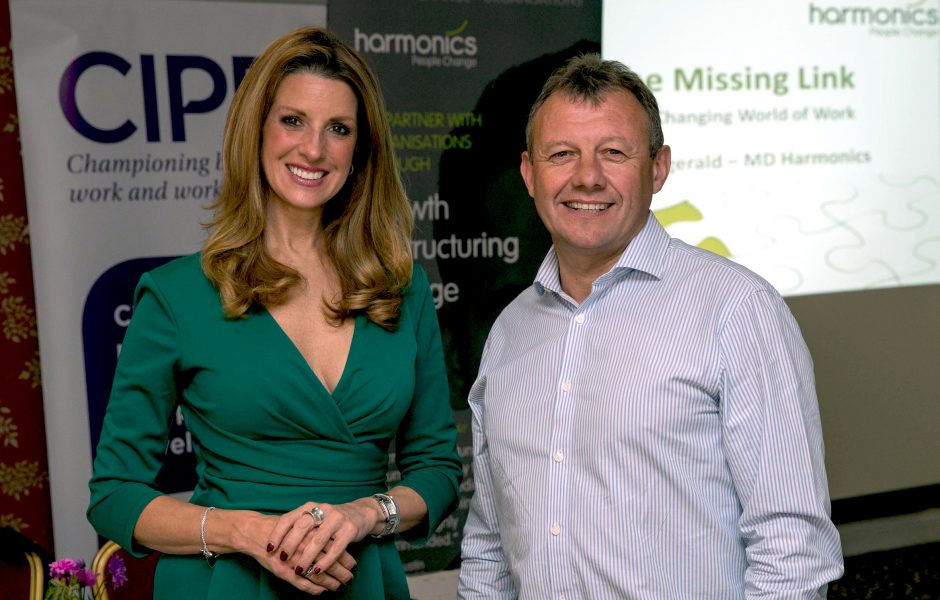What Do Talent Really Want?
At Harmonics we are increasingly being asked to talk to Senior Leaders about Talent Management and why they need to prepare a Talent strategy. I wanted to share my insights on how we need to get real when thinking about Talent Management.
Is it all about the money?
Corporate Business Leaders are rewarded by how much money they make each quarter for their shareholders. It’s quite simply a numbers game to succeed. HBR this month profiled the Best Performing CEO’s in the world for 2017. Three metrics were used to identify the best:
- Country adjusted total shareholder return
- Industry adjusted total shareholder return
- Change in market capitalisation
It is no surprise from the metrics used that, for a CEO, their track record in delivering financial return to investors is what matters. There is no mention in the metrics about talent attraction, development or attrition, yet we are consistently hearing that an inability to “get the right people” is slowing down business growth.
Short Termism
Top Global CEO’s now make more than 300 times the average worker, up from a 20-1 ratio in the 1960’s. While the salaries have been increasing, CEO tenure has been decreasing each year since 2000. Fortune 500 CEO’s survive 4.6 years on average. These CEO’s and their Leadership teams are under immense pressure to hit the ground running and deliver the numbers. We see the short termism playing out publicly in the Premiership as Football Managers get a short time to deliver results or they are gone. The HBR Best performing CEOS however lasted on average 16 years and had time to effect the change.
This pressure at the top has an impact on attracting and retaining top talent. This short term numbers game is visible for all to see within the organisation.
Everyone wants Top Talent
To deliver the metrics and business results, the heat is on to find the best talent and have them playing as a united and aligned team. So why is everyone finding it so hard to attract and retain top talent. Here are 4 observations from the work we do:
- Every Organisation wants to hire the “perfect fit”
- Top Talent want continuous “career growth” opportunities
- Younger talent have huge “social power”
- Don’t write off older talent too soon
Every Organisation wants to hire the “perfect fit”
We have personal experience to relate to this point. In our recruitment division, Harmonics Recruitment, we have noticed that the time it takes Hiring Managers to make hiring decisions is often too long. If the recruitment process slows down, it can send a message to those shortlisted and impact on the organisations ability to attract the best talent. Difficulty scheduling meetings in Senior Leaders diaries can slow down the hiring process but the real reason great candidates are lost is because employers keep holding out for the “perfect fit”. Everyone wants the “highly experienced with specific industry experience and a glowing track record” so they can hit the ground running. In a tight labour market, there needs to be more realism on what is available in the talent market.
We also observe Business leaders reacting to different crisis, spending days in back to back meetings and putting out fires. They don’t have time to coach and mentor new hires. Hence, they want the “perfect fit”.
However, to attract talent, leaders need to commit time to coaching them to bridge the industry or skills gap. Yes, it does take time, but when you hire for attitude and mind-set then the skills and knowledge acquired in the role offers the career growth talented people are looking for. What hiring managers need to realise is that their idea of a “perfect fit” is based on a CV that describes what a person has already done and often not what they want to do next. Those being headhunted will often ask our recruiters where the career growth opportunities lie in a role that looks similar to what they’ve being doing for the past 2 years. So when recruiting, it is important to remember that your perfect fit may not be the candidates idea of a perfect fit for their career future!
Top talent want continuous “career growth opportunities” – When speaking to a Senior Director last week, she described her experience with a past employer. She said “it was a time when there was just one amazing career growth project after another. I never thought of leaving. I had great mentors who created the paths for me to develop new skills. I learned more there than with any other employer”.
Organisations have become flatter and retention strategies driven by ‘promotion promises’ are simply unsustainable. The career up the functional silo is too narrow and does not build out the breadth required for future leadership roles. Career success is not only about promotion, top talent may want to stay and deepen their knowledge and skills in specialised roles critical to the future organisation. Offering hi-potentials a management position without ascertaining a ‘skills fit’ leads to a great career hitting an unexpected crash without any warning. Our career accelerator coaching programmes have been designed to guard against this happening. Great career progression in organisations needs to change to be become more about further developing your strengths which enhance future employability rather than just climbing the ladder to promotion.
Today, there is a dual ownership onus on both employer and employee in making career growth opportunities happen. Roles are constantly changing, new job titles are appearing and new skills are in demand. To use the football game analogy again, the game is constantly changing, it is about adapting and anticipating to these changes. We have helped organisations illustrate changing career paths to paint a clearer picture for employees where they can grow in an organisation that is rapidly changing. The traditional org chart has now become an organic chart that is quickly evolving as new skills are needed.
Younger talent have huge social power – Like-minded younger talent gravitate towards each other. They see what others are doing and want some of that too. They are that stage of life when they are curious and seeking new experiences. They also don’t trust organisations like their parents did because they have seen their parents being made redundant after giving many years loyal service.
Instead, the new loyalty is to look after numero uno. It is about gaining as many varied experiences, skills and knowledge on their CV as possible. The CV today is like a career passport where lots of organisations, roles and achievements are stamped on it. This new approach affords mobile talent entry to new employers and ensures they never go stale.
For organisations, it is being clear from the outset that talent will leave. It is not personal, it is just how the game is now played. But it is just important to learn the preferences of this nomad generation of mobile talent and help them to grow while they stay. They may come for a while and they may boomerang back again at some point on their career journey when they have learned new skills. We also see great opportunities for organisations to help younger talent become teachers of specific skills while they are here. This way they have left a legacy and the organisation has been enriched instead of feeling anger about talent moving on. Younger talent have huge social networks and their word is gospel to their friends in choosing where to work. If they have a bad employee experience, it goes viral on Glassdoor at speed. It is true, social is the new power.
Don’t write off older talent too soon – In our research, the average age when people are getting the tap on the shoulder from corporate employers to take a package appears to be 52. This milestone seems to indicate when someone has become too expensive in the corporate world. It’s leading to a lot of stress in the workplace for this age cohort who feel let down because they have offered such loyalty.
There is a new employer-employee contract required for those talented people who are being pushed out before their time is up. Those who fear they may be at risk need to develop a growth mind-set and demonstrate how they can learn new skills and pitch what they have to offer. This is what is required in the new world of work.
Your career is your business and it is up to employees to keep pitching for work like a start-up would to an investor. I have seen people in this age bracket be reactive and wait for the organisation to tell them what to do. The onus is on the employee to make the business case to their employer.
Employers, on the other hand, need to have development conversations with their over 50 talent. I see talented people over 50 being written off too young because frank and honest conversations failed to happen on both sides. In our opinion, those who are 50 plus need to opt-in to taking on further professional development. By opting out, they are demonstrating a fixed mindset and telling their employer they are closing the door to new internal opportunities. It may be the right time to leave, but the size of the package is only one consideration, how to become employable and marketable in the future is another and this requires opting-in to some form of development.
“Not everything that counts can be counted”
This quote by Albert Einstein was never more relevant in the search for talent. The best performing Global CEO’s list is indeed measured by financial metrics. The best performing talent more often than not do not trust organisations. They instead trust what their friends tell them and what they read on Glassdoor. This is not so easily counted. Metrics find it harder to identify the manager that is blocking a talented person’s opportunity to make their next internal career move which is the real reason they leave. It is only in hindsight that we hear about the recruitment process that took too long because leaders could not make a decision about a candidate that wasn’t just the “perfect fit”. The busy leader who is still rewarded with their bonus even though they are stuck in back to back business meetings and haven’t taken the time to coach and have career conversations with their talented people who are being head hunted and feeling loved elsewhere. The busy organisation that fails to proactively create “career growth” opportunities for their hi-potential talent and then mourn when they leave.
Attracting, developing and retaining talent is not all about offering better money or office perks. It is, more often than not, about having the time for great career conversations to find out what talent really want both at interview and as they progress in your organisation. It is about taking the time to have lunch offsite and listen, truly listen to what is being said so you can help your talent to grow. Tony Crabbe wrote in his best-selling book Busy. “It’s the first time in history we can work when we want to so we do!”
The above strategies do not cost any money, they simply require attention. They won’t appear in any financial metrics for a Best Performing CEO but they will make a huge difference to your talent strategy. We just need to be more honest with ourselves and take the time to discover more about our great talent before they leave.
“If you need to conceal your true nature to get in the door, then you’ll probably have to conceal your true nature to keep that job” – Seth Godin – Lynchpin






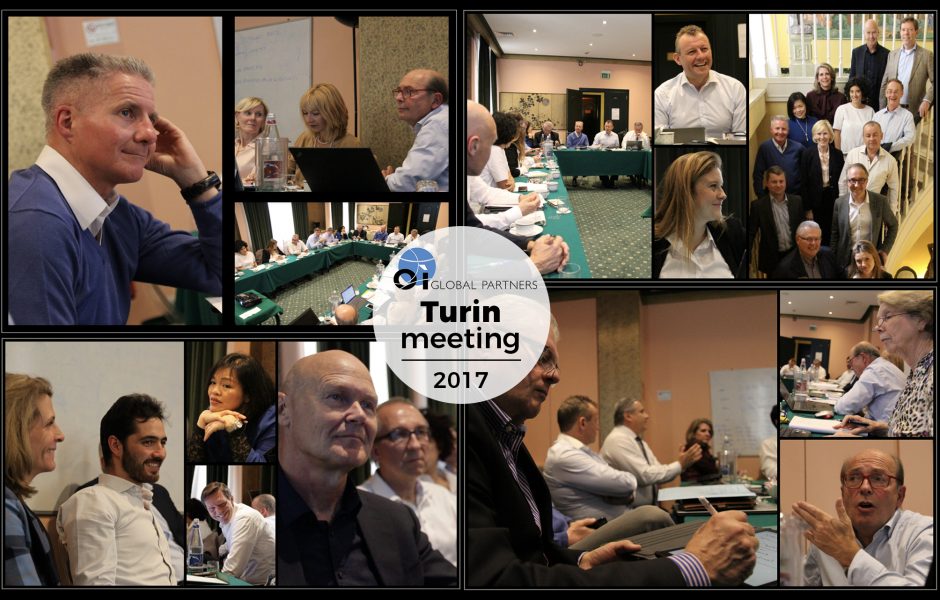

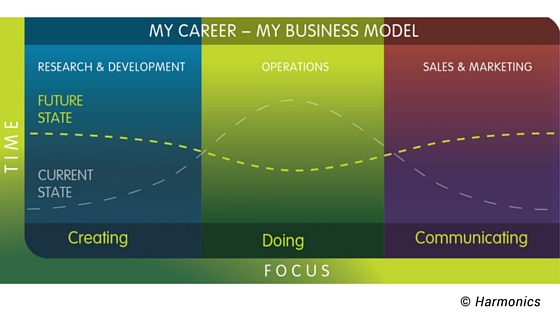
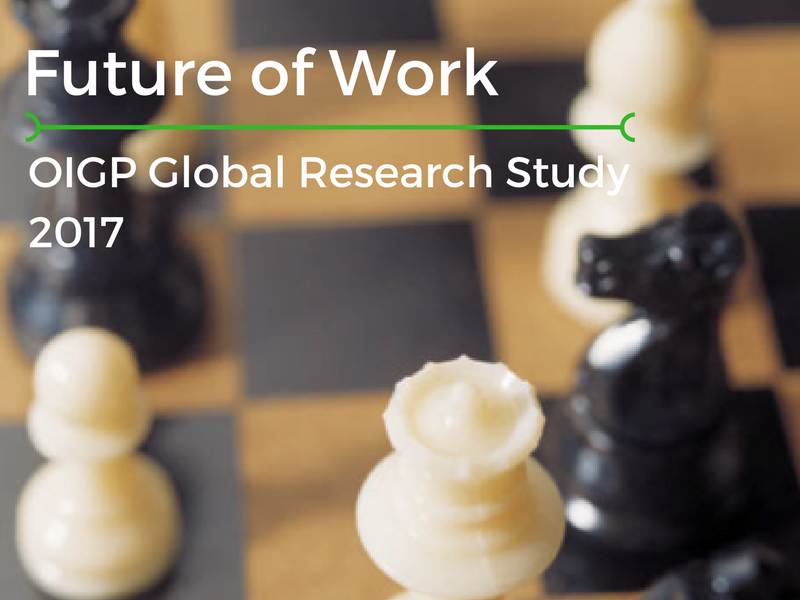
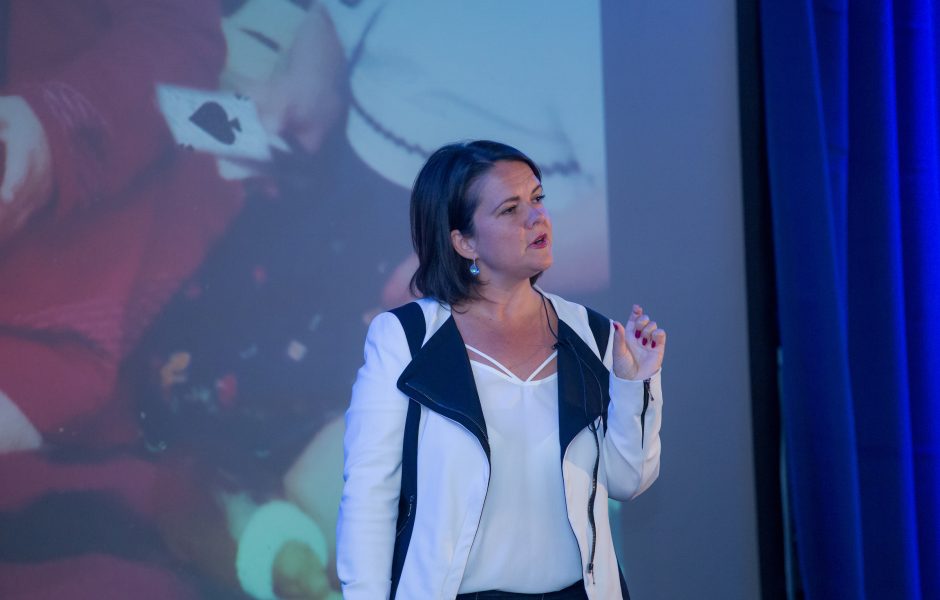

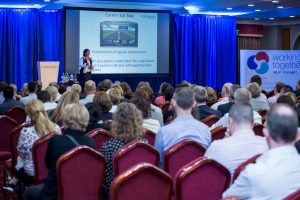

 Q. Do you expect to be delivering this Masterclass again?
Q. Do you expect to be delivering this Masterclass again?